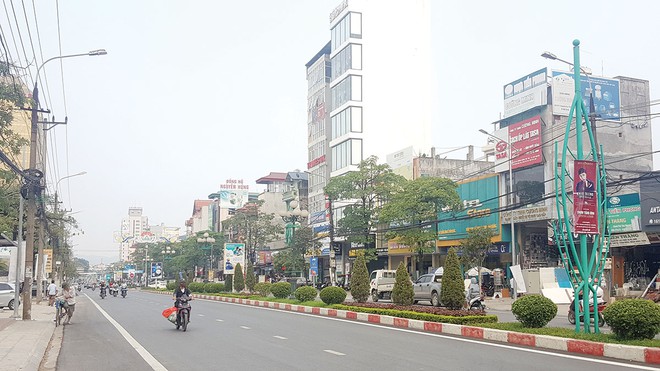
With robust economic growth averaging 14 per cent per year, as well as being one of the top performers in foreign investment attraction, Thai Nguyen has focused on propelling transport infrastructure development, taking it as the essential precondition for the province to accelerate social and economic development.
The movement on land handovers for building roads that saw widespread deployment throughout the province a decade ago laid a stepping stone for building new-style countryside models and ushering in a new development direction with a longer vision.
To court investment and drive forth social and economic development, turning Thai Nguyen from a mountainous midland locality into a bright point in industrial development, provincial authorities had taken drastic measures to repair, upgrade, and build up a comprehensive transport system crossing the vibrant industrial development hub.
In previous years, the province concentrated resources into building and improving the local transport system, and diverse arterial routes helping to connect regional centres have received priority for investment and construction.
Some of the key projects involved upgrading a section of provincial route 261 along with an associated bridge; improving the landscape between national Highway 3 and its access road; building the road section linking Highway 3 to Yen Binh Industrial Zone and provincial route 261; and completing Hanoi ring road 5’s section that runs through the East-West corridor, Yen Binh Complex, and Song Cau crossing bridge.
The Hanoi ring road 5 initiative, developed by Thai Nguyen Project Management Unit, is a vital transport infrastructure project in the province, creating a backbone along Yen Binh Complex and helping to significantly reduce travel time from Hanoi and other northern localities, hence laying the groundwork to push development and attraction.
With over 385 kilometers in total length, Hanoi ring road 5 travels through 36 districts and cities belonging to eight provinces and municipalities, including Hanoi, Hoa Binh, Bac Giang, and Thai Nguyen. The Thai Nguyen passage runs more than 9 km long.
This large-scale project is of great significance to social and economic development, as well as national defense and security. With VND966 billion ($42 million) in total investment value, the project is slated for completion next year, showing Thai Nguyen’s long-term vision in investment attraction.
Additionally, Hanoi ring road 5 could help the province quickly achieve targets set in the resolution of the 19th Provincial Party Congress for the 2015-2020 term.
By virtue of seamless and modern infrastructure, an abundance of skilled workforce through the presence of seven universities and dozens of professional technical colleges, and the strong commitment of local government, both global and local leading players such as Samsung and Masan Group have chosen to settle down in Thai Nguyen.
South Korean tech giant Samsung has poured nearly $7 billion into Thai Nguyen to build a colossal handset manufacturing complex, as well as a large batch of component production facilities. Each year, Samsung Thai Nguyen reports about $24 billion in total export value and provides jobs to over 70,000 laborers from the province and neighboring locations.
Private conglomerate Masan Group meanwhile has pumped over VND10 trillion ($434.8 million) into a tungsten investment venture in Thai Nguyen which is helping turn Masan into the world’s largest deep-processed tungsten product supplier outside China, holding 36 per cent of global market share. Masan Group’s tungsten business in Thai Nguyen rakes in over VND5 trillion ($217 million) in annual revenue, providing jobs to more than 2,000 laborers, and contributing over VND1 trillion ($43.47 million) to the province’s coffers.
As one of 14 provinces and municipalities in the northeastern region, Thai Nguyen serves as a gateway to promote social and economic exchanges between mountainous midland and northern plain areas.
The province holds a promising position for external transport development, located 50km from Noi Bai International Airport, 80km from Hanoi centre, and 200km from the northern port city of Haiphong.

















